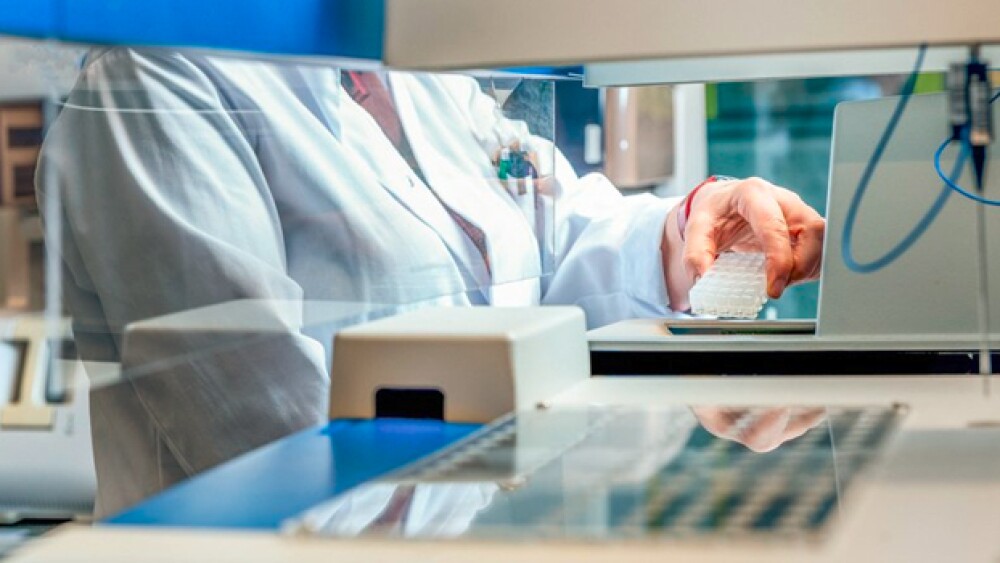Visterra has outgrown its headquarters and is moving to a site double the size in suburban Waltham, MA.
Visterra, currently based in Cambridge, Massachusetts’ Kendall Square, has outgrown its headquarters and is moving to a site double the size in suburban Waltham, Massachusetts.
Visterra is a clinical-stage biopharma company focused on developing anti-infectives using its Hierotope platform. The Heirotope technology platform allows the company to design and engineer antibody-based therapeutic products, each binding to an epitope. An epitope is a key component of an antigen, a molecule on the surface of a cell.
The company has been growing rapidly. On October 5, 2017, Visterra announced it had completed a Series C financing round totaling $46.7 million, which included a new extension totaling $23.6 million. It had raised an initial $23.1 million in June 2016.
The funding is in support of its two lead product candidates, VIS410 and VIS649. VIS410 is an antibody to treat hospitalized patients with influenza A, regardless of the strain of virus causing the infection. VIS649 is an antibody to treat IgA nephropathy. VIS410 is in Phase IIb clinical trials, and VIS649 is in a Phase I trial.
The money was also being used to continue developing its ViStar antibody Fc engineering program.
The Series C round included existing investors, the Bill & Melinda Gates Foundation, MRL Ventures Fund, Vertex Venture Holdings Ltd., Polaris Partners, Flagship Pioneering, Omega Funds, Cycad Group, and Alexandria Venture Investments. New investors included Serum Institute of India Pvt. Ltd., CTI Life Sciences and Allegheny Financial Group.
Since 2008, the company has raised $122.1 million in venture funding.
On November 1, 2017, the U.S. Food and Drug Administration (FDA) granted VIS410 Fast Track designation for influenza A. “Severe influenza A is a serious disease, particularly dangerous in individuals with compromised immune systems, leading to as many as 700,000 hospitalizations and 56,000 deaths annually in the U.S.,” said Brian Pereira, Visterra’s president and chief executive officer, in a statement. “We are developing VIS410 as a single-dose treatment, and plan to initiate a Phase IIb clinical trial in hospitalized patients with influenza A in early 2018.”
In addition to VIS410 andVIS649, Visterra has VIS513 in development for dengue fever, VIS705 for severe Pseudomonas aeruginosa infection, and early-stage programs in oncology, more infectious diseases, including RSV and severe fungal infections, and chronic pain.
Although Kendall Square is still a desirable location for Boston-based biotech companies, Visterra is not the only biopharma company to head to the less-expensive suburbs. In July 2017, C4 Therapeutics announced it was moving out of Kendall Square to nearby Watertown to double its square footage and save money with lower rent. It had 20,000 square feet in Kendall Square, but more than double that in Watertown. Others leaving Kendall Square for the ‘burbs include Exosome Diagnostics, Dragonfly Therapeutics, and RaNA Therapeutics (since renamed Translate Bio).
Lest anyone think there’s a massive flight out of Kendall Square, plenty of companies are moving there. Shire, the second-largest biotech employer in Massachusetts (after Sanofi Genzyme), decided in June 2017 to consolidate its statewide employers to two sites—one in Kendall Square, Cambridge, the other in Lexington. And Dutch company Philips NV recently announced in January that it is relocating its North American headquarters from Andover, Mass. to Kendall Square, bringing about 2,000 employees. The relocation is expected in 2020, and is currently building its new facility.





